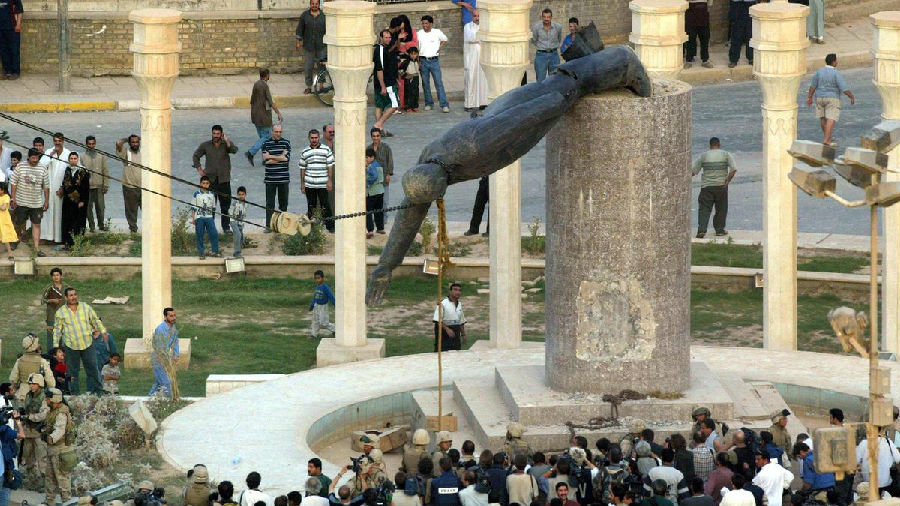Eventually, the United States and Britain, with a group of troops from other countries,
最后,美国和英国,还有别的几个国家的军队,
invaded Iraq on March 20, 2003 and quickly brought down the government of Saddam Hussein.
于2003年3月20日攻打伊拉克,并迅速使萨达姆·侯赛因倒台。
On May 1st 2003, George W. Bush declared the end of quote-unquote "major combat operations".
2003年5月1日,乔治·沃克·布什宣布“主要战事”结束。
At the time I'm speaking these words, four years after the fact,
而就在现在,布什宣布的4年后,
the United States and British military are still extensively deployed in Iraq, supporting a fledgling democratic government.
美国和英国军队还大量驻扎在伊拉克,协助还在形成的民主政府。
The rightness or wrongness of this military operation will take years to establish.
这次行动究竟是对还是错,还需要很多年才能确定。

At present, it is basically a matter of opinion.
现在,它主要是看法不同的问题。
There's no earthly way of knowing how them this will all turn out.
大家也不知道这最后会变成什么样。
So, instead, let's turn to a question that you, hopefully, should be able to deal with:
那么,我们现在来看一个我们可能能够解答的问题:
what are the proper goals of America and its foreign policy after 9/11/2001?
美国在911事件之后的目标和外交政策应该是什么?
More than two centuries ago, President George Washington cautioned America to avoid foreign entanglements.
两个多世纪前乔治·华盛顿警惕美国不要纠缠于国际事务。
Yet, the lesson of two World Wars has taught us that America cannot just stick its head in the sand, while the rest of the world slugs it out.
然而,两次世界大战的教训告诉我们,美国不能把自己的头藏在沙子里,等着世界其余国家决一雌雄。












